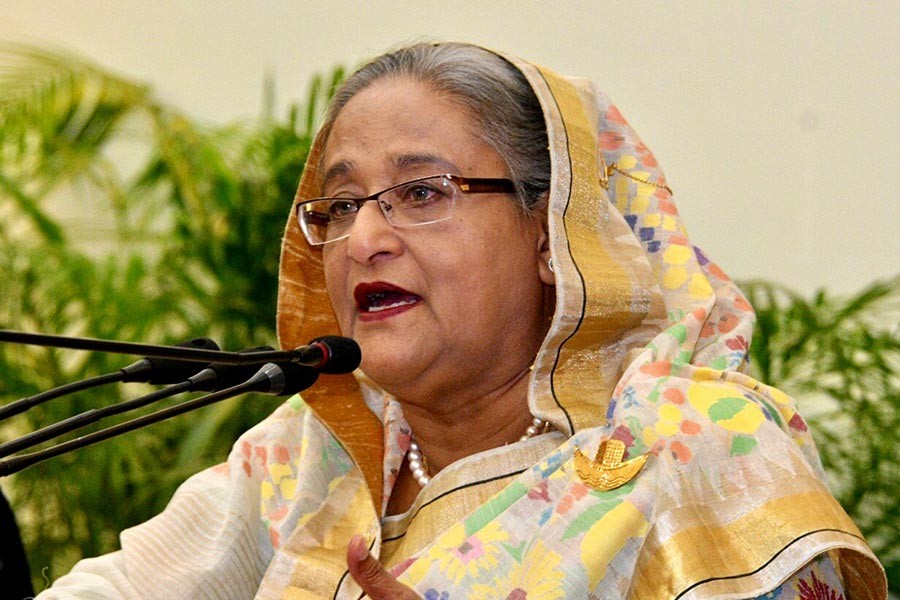Prime Minister Sheikh Hasina has urged factory owners and other titans of industry to continue working and meet the needs of Bangladesh’s populace despite the ongoing global economic uncertainty caused by the war in Ukraine and the series of sanctions and counter-sanctions it prompted.
The prime minister’s request came during the inauguration of industrial infrastructure and laying of foundation stones at 50 economic zones across the country at an event commemorating the 50th anniversary of Bangladesh’s independence on Sunday, which she joined via video conferencing from her official residence, Ganabhaban.
“The global economy took a hit due to COVID-19 and Bangladesh was not exempted from it,” she said. "Still, I would say that we took the necessary steps to maintain the pace of our economy. But then came the Russia-Ukraine war and the sanctions and counter-sanctions to pour salt on the wound.”
As a result of the war, all of Bangladesh’s imports and transport costs have gone up, Hasina said.
“As a result, many countries around the world have already announced that they are facing economic instability. That’s what the economic analysis says. We can still say that Bangladesh’s situation is not that bad.”
“I urge you to continue operating your industries and actively work to meet the demand of the people of our country,” Hasina told the entrepreneurs at the event. “The Awami League government has opened up many incentives and opportunities for you. The Hawa Bhaban isn’t in charge anymore and you don’t have to sort out your dues to them or run here and there to get things done.”
The prime minister said her government has been able to bring law and order to the country.
“Businessmen will do business,” she said. “Therefore, we are doing everything to develop that sector and to provide opportunities.”
“As such, I urge you all to work for the welfare of the country. The more you bolster the welfare of the people, the more support our government will provide. But do not do anything that would lead to the suffering of the people or force them to endure hardship.”
Bangladesh is attempting to shore up its food production due to a shortage on the world market, Sheikh Hasina said.
“All the fallow land in the Mirsharai Industrial Area will be cultivated,” she said.
The prime minister highlighted her experience during her trip to Japan as an example.
“On one side there were factories and, on the other, rice fields. I went down into the rice fields to see them for myself. So, we can do that here as well. That’s the kind of thing I want.”
“We must ensure that farmland does not lay unused, and, if there is unused land, it can be used to house workers. If you provide your workers a good place to stay they will do more work, be more productive and we can even improve their skills through training and make arrangements for their training.”
Land has been allocated for 100 economic zones throughout Bangladesh and they are being developed slowly, the prime minister said.
“Many countries have invested in them. We have given these countries several parcels of land. The companies will come from those countries and have control over the production process. Through them our production will increase and, simultaneously, we will meet the demand of the people of our country and also export goods abroad.”


